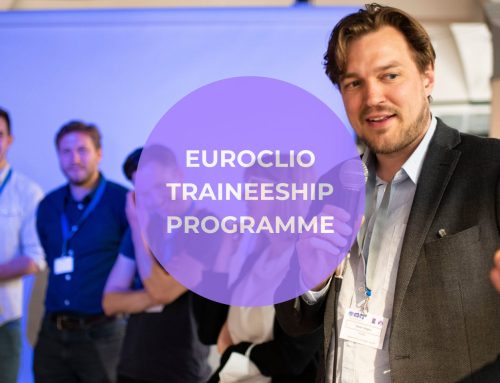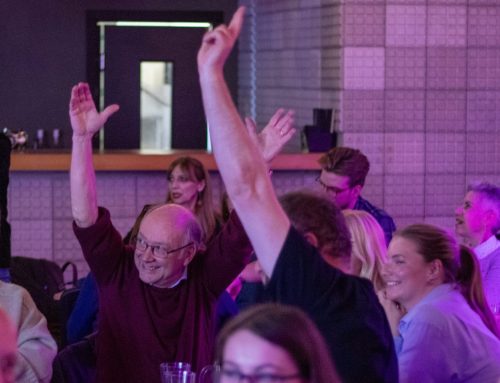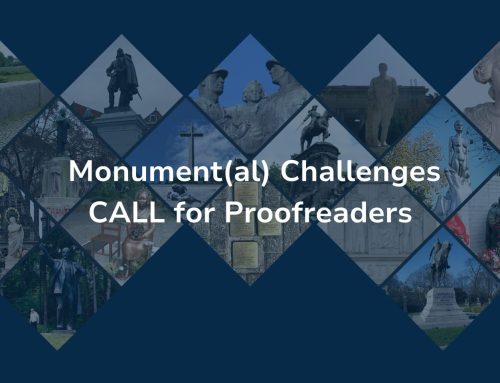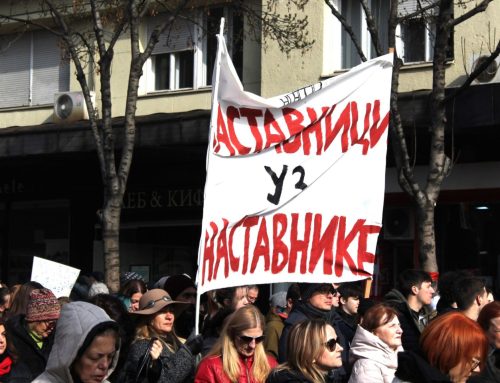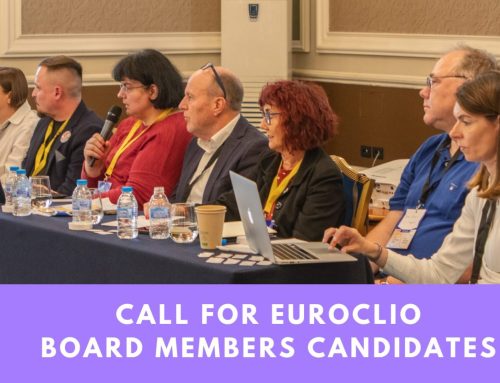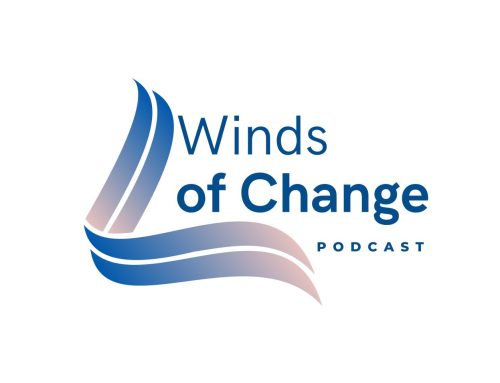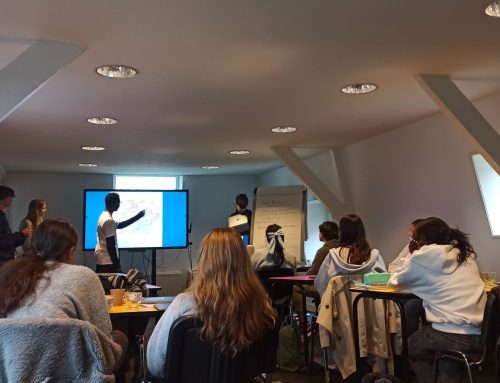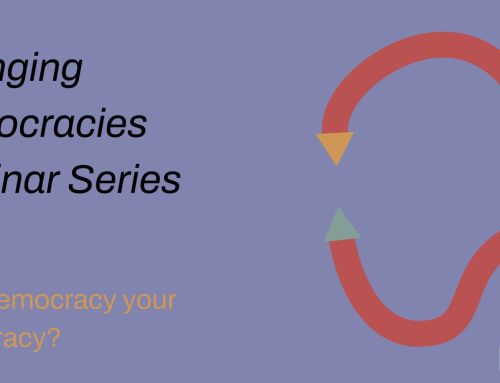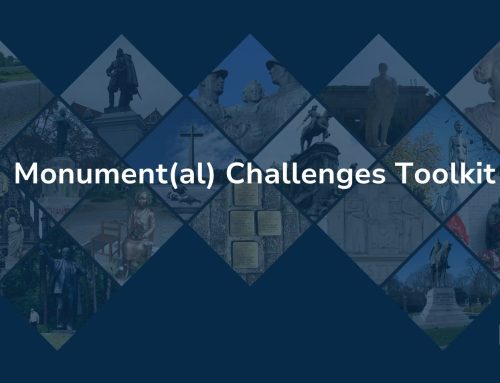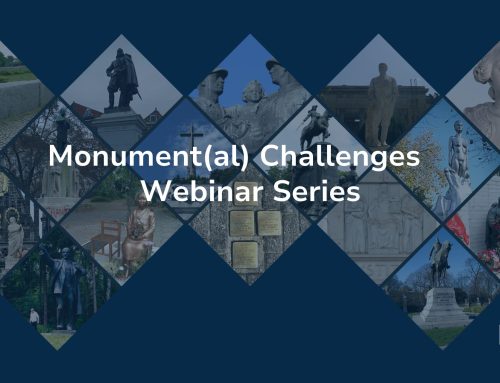Words of welcome were given by the Mayor of the city, Eneko Goia, and the Councilor responsible for Culture, Basque Language and Education, Miren Azkarate, whilst the campaign to celebrate EuroClio’s 25th anniversary, “EuroClio25”, was launched. A performance from the Gero-Axular Dantza Taldea followed, thrilling the audience. The dance group was created in 2004 by some parents of Axular ikastola, with the intention of preserving Basque culture but also developing future trends.
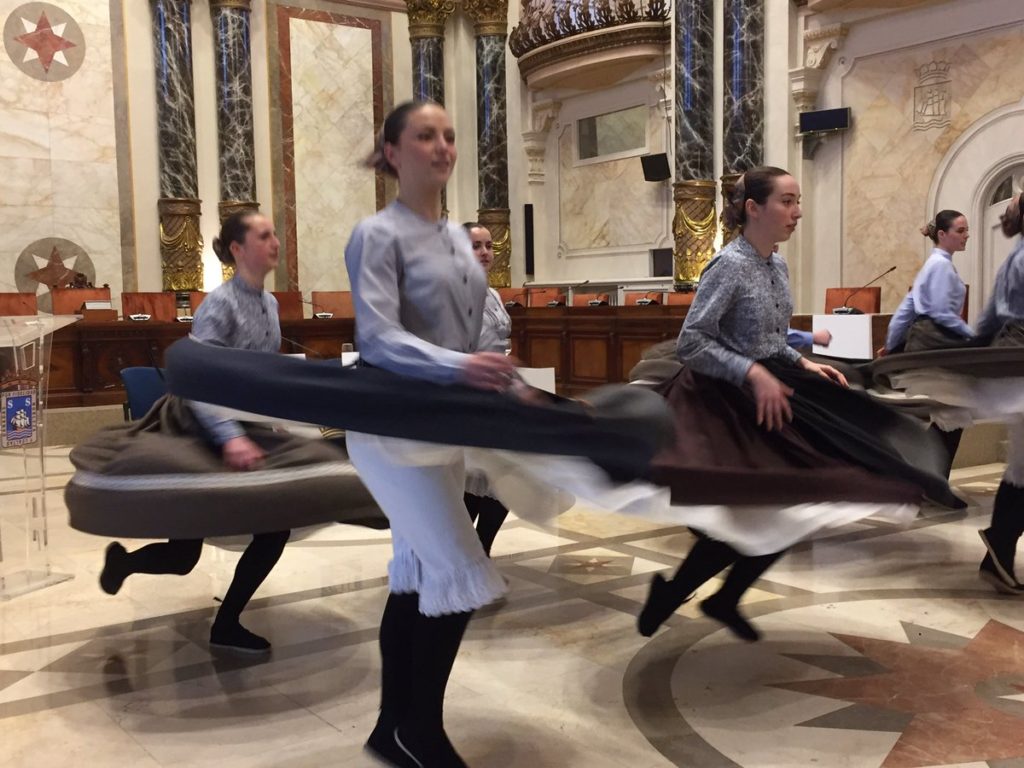
A further official welcoming ceremony took place on Monday 3 April, with contributions from the Vicerector of the host university EHU-UPV, the University of the Basque Country, and representatives from the joint local organiser associations: Vice President of the History and Geography Teachers Association of Spain, Luis Horrillo; and the President of Ikastolen Elkartea (Basque School Network), Koldo Tellitu.
President of EuroClio Lóa Steinunn Kristjánsdóttir raised strong arguments when highlighting the importance of lifelong learning of teachers during an interesting contribution, whilst Tatiana Milko from the Council of Europe posed questions about the position of History as a subject — for instance whether it can be merged with civic education or Human Rights studies.
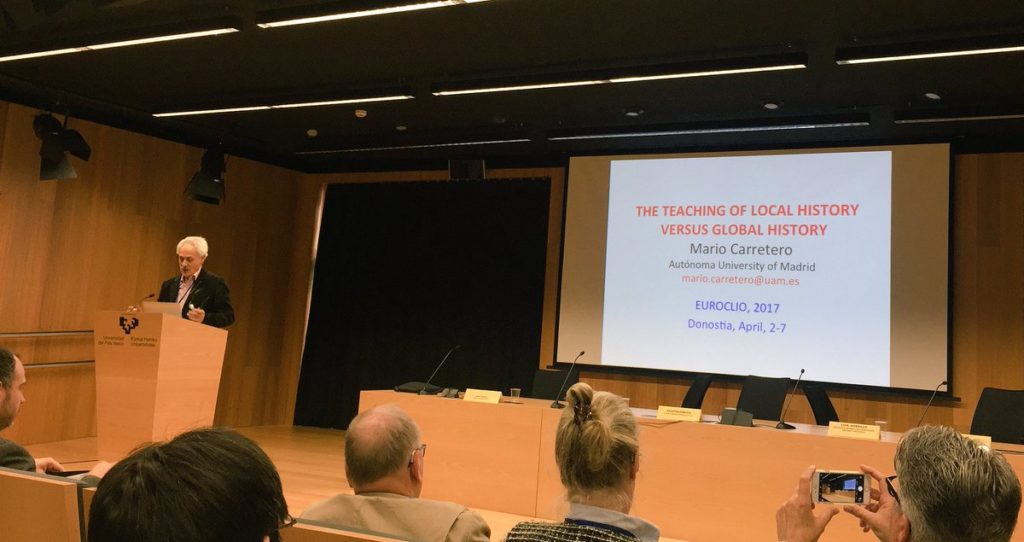
Mario Carretero, Professor of Psychology from the Autonoma University of Madrid, gave a fascinating key note speech on the topic of “Teaching of Local History (Collective Memory) Versus Global History”. Professor Carretero highlighted the role master narratives can play and the complex relationship between local and global issues.

